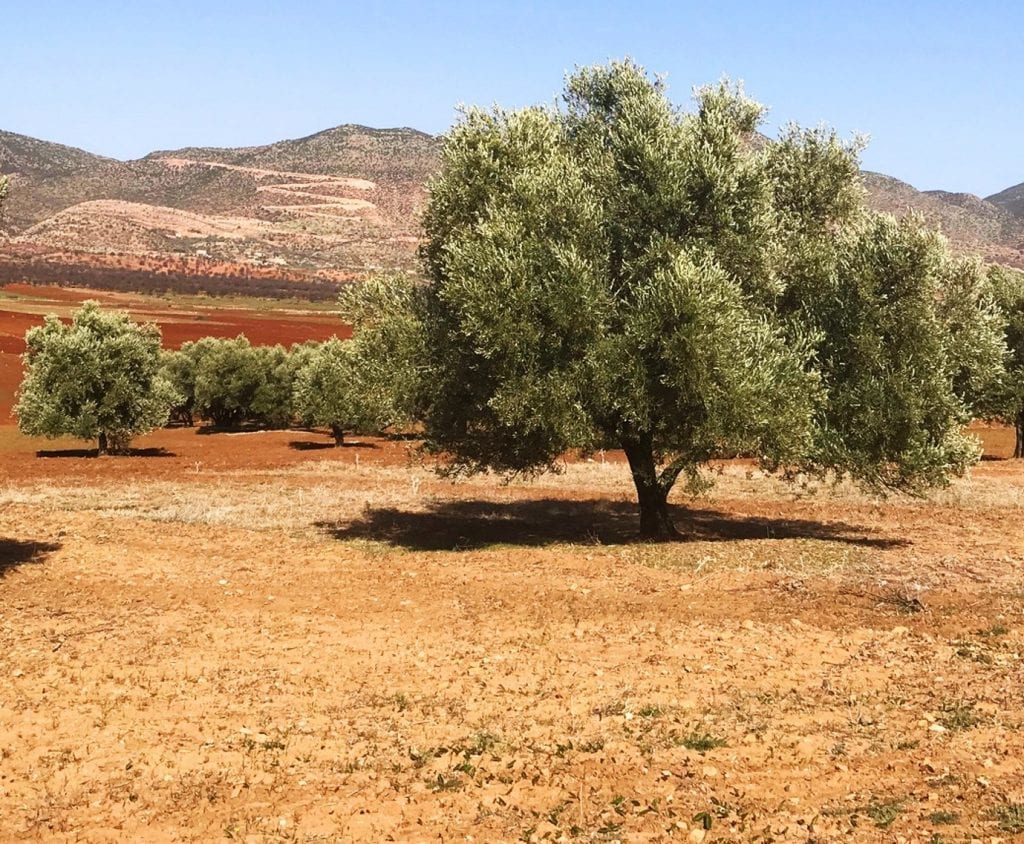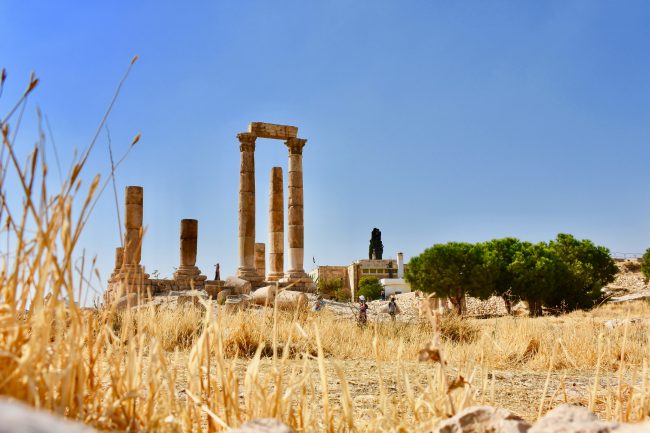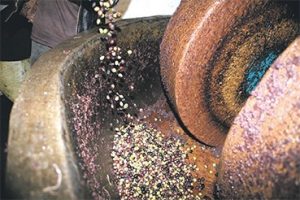New Study Links Oldest Wild Olive Trees In Mediterranean To Morocco

Ancient humans in North Africa benefited from the fruits of olive trees about 100,000 years ago, according to a new study. The research, published by NaturePlants and authored by a team of international scientists, revealed evidence of wild olive trees in the Rabat Temara caves – a site of key archaeological significance on the Atlantic coast of Morocco.
Fans of Morocco Gold Extra Virgin Olive Oil will be delighted to read this latest find, which further cements the special link between Morocco and the wonders of the health boosting olive fruit.
The research in Morocco has unearthed some of the oldest traces of wild olive trees in the Mediterranean, and the oldest in Africa.
According to a report in The Olive Oil Times, researchers were surprised to find evidence of such ancient olives in Morocco. The study was originally aimed at understanding which plants were collected by early homo sapiens.
“We did not expect to find olives, olive pits and seeds, nor did we know that the olive tree was present in this location, even more during the last glacial period,” Laurent Marquer, co-author of the study and botanist at the University of Innsbruck in Austria, told Olive Oil Times. “That was a bit of a surprise.”
Of the charcoal fragments identified by the researchers, 72 percent were the wild variety of Olea europaea. The scientists also investigated seed fragments, 81 percent of which were charred olive stone. Charcoal from wild olives was also found at a nearby excavation site.
“This suggests the widespread use of wild olives during the Aterian Middle Stone Age (MSA) in the Rabat-Temara region,” the researchers wrote. “There is no doubt that wild olives were used by prehistoric hunter-gatherers.”
Researchers found that, while the burned olive branches did not carry whole fruits, evidence of fruit fragments were found in the fireplace, leading to a belief that the olives were eaten and the pits were discarded in to the fire to burn, alongside the branches.
“We found specific breakage patterns in the samples of the fragmented olive stones, which were broken and charred,” Marquer said. “And we assume that in order to break them, they probably had to consume them first.”
Olive Oil Production in Morocco
Morocco has been producing high quality olive oil for millenia, from the time of the Romans. The existence of centenary trees and traditional presses (maasras), testify to the antiquity of olive oil production. Indeed, olive oil has long been considered a noble food by the local population.

The benign climate makes Morocco a ‘Garden Of Eden’ on the doorstep of Europe and the ideal location for olive cultivation with mild winters and warm, dry summers. The soils in the main olive-growing regions are rich and deep, and generally have an equal balance of clay and coarse sands.

However, despite now being the fourth largest producer of olive in the world, (Morocco harvested an estimated 2 million tons of olives in the most recent 2018/19 harvest), the quality of Moroccan olive oil is relatively little known outside of the country.
Researchers, using industry standards, published a report on the quality and purity of Moroccan olive oil in the journal Food Chemistry. They classified 94 percent of samples tested as extra virgin olive oil and only 6 percent as virgin olive oil.
Why Is Morocco Gold The Best Olive Oil In The World?
Morocco Gold extra virgin olive oil comes from groves in the foothills of the Atlas Mountains. The specific soil conditions of the Beni Mellal region, together with the mild winters and summers, caressed by hot winds from the Sahara, make ideal growing conditions for Morocco Gold olives.
From branch to bottle, no shortcuts are taken, no steps are overlooked. Simply the best Picholine Marocaine olives, selected early in the season, handpicked by a co-op of female harvesters, and cold pressed within 24 hours of picking.
The end result is a ‘liquid gold’: an incredibly rare, extra virgin olive oil of exceptional quality, extraordinary health benefits and a taste like none other. Nurtured with love for generations, using only traditional, natural methods, Morocco Gold retains its distinctive flavour to offer the finest sensory experience.
